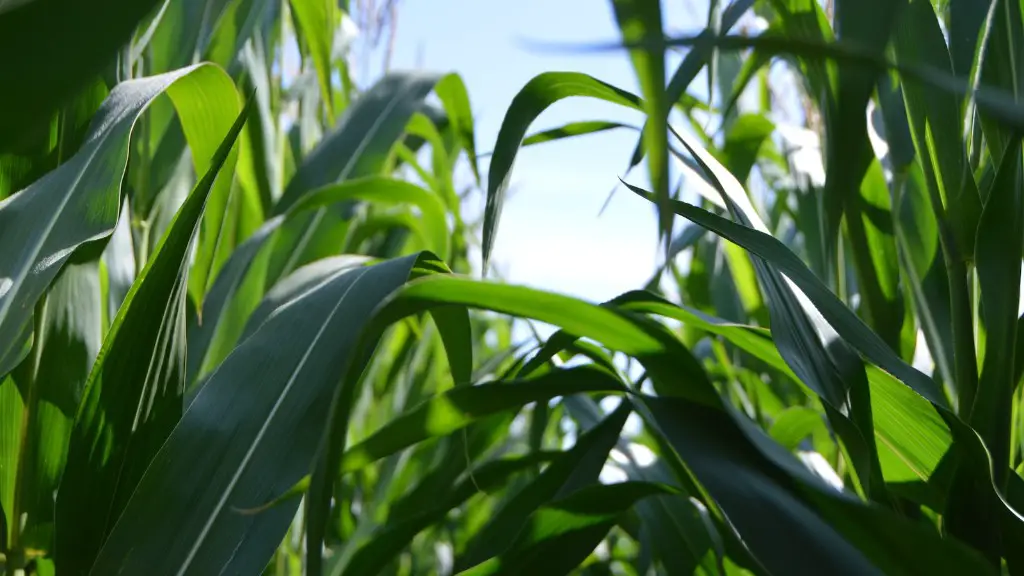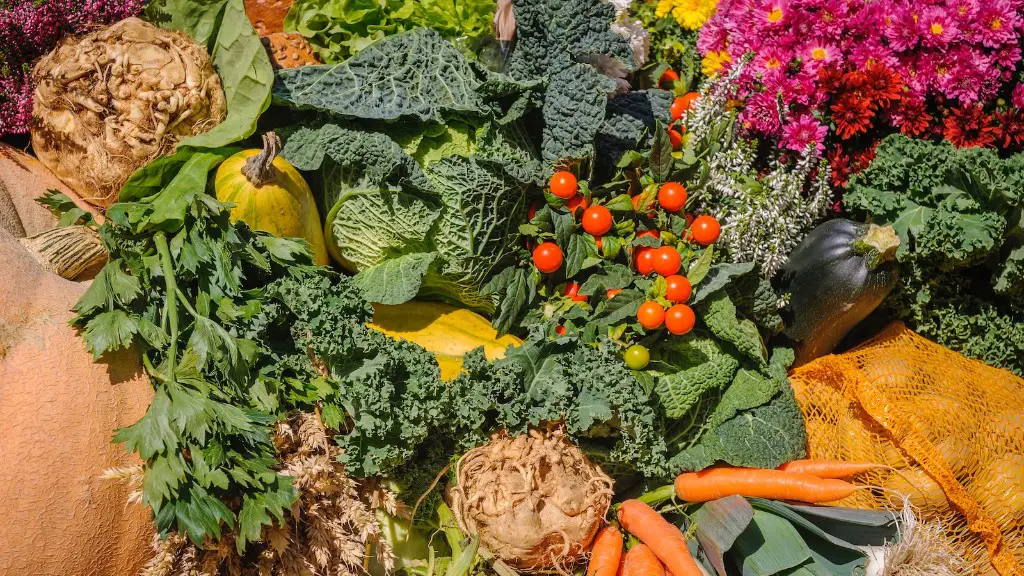Genetically modified organisms (GMOs) are living organisms whose genetic material has been artificially manipulated in a laboratory through genetic engineering. This relatively new science creates unstable combinations of plant, animal, bacteria, and viral genes that do not occur in nature or through traditional crossbreeding methods.
GMOs are important to agriculture because they allow farmers to grow crops that are resistant to herbicides and pests, and can improve yields. For example, farmers can spray fields with herbicides to kill weeds without harming the crops, or can plant crops that are naturally resistant to pests. GMOs can also be engineered to tolerate extreme climates, such as drought or frost.
While GMOs hold great promise for agriculture, there are also concerns about their safety. Some worry that GMOs could have unintended consequences, such as causing new allergies or creating new toxins. There is also concern that GMOs could harm the environment, for example by causing the evolution of super-weeds that are resistant to herbicides.
Genetically modified organisms are important because they allow us to have more control over the food we eat. We can choose to modify the genes of crops to make them more resistant to pests or to make them grow faster. This allows us to produce more food with fewer resources, which is important for feeding the growing population.
Why is GMO important in agriculture?
GMO crops have been controversial, but many experts believe that they can be beneficial for farmers. One way that they can help is by reducing the amount of pesticides that farmers need to use. This can save farmers money and also reduce the amount of pesticides that end up on crops. Another benefit of GMO crops is that they can be herbicide-tolerant. This means that farmers don’t need to till the soil to control weeds, which can reduce soil erosion.
GMO crops have many benefits for both farmers and consumers. They produce higher yields, have a longer shelf life, are resistant to diseases and pests, and even taste better. These benefits are a plus for both farmers and consumers.
What are GMOs in agriculture
GMOs are living beings that have had their genetic code changed in some way. While conventional breeding, which has been going on for centuries, involves mixing all of the genes from two different sources, producing a GMO is much more targeted.
GMO foods are designed to be healthier and cheaper to produce. Advantages of GMO foods include added nutrients, fewer pesticides, and cheaper prices. Disadvantages of GMO foods can be allergic reactions or increased antibiotic resistance.
What are the benefits of genetically modified animals?
Genetic engineering of animals is a process by which new genes are introduced into an organism. This can be done to change the characteristics of the organism, or to introduce new characteristics. There are many potential applications of this technology, including improving public health, enhancing food production, reducing environmental impact, optimizing animal health and welfare, and producing cutting edge industrial applications.
The potential benefits of genetic engineering are vast and varied. In terms of public health, genetic engineering can be used to create new and improved vaccines and treatments for diseases. It can also be used to develop better diagnostic tools. In terms of food production, genetic engineering can be used to create crops that are more resistant to pests and diseases, or that require less water or fertilizer. This can help to improve yields and reduce the environmental impact of agriculture. In terms of animal health and welfare, genetic engineering can be used to create animals that are less susceptible to diseases, or that have improved reproductive or growth rates. This can help to improve the quality of life for animals, and to reduce the impact of animal agriculture on the environment. Finally, in terms of industrial applications, genetic engineering can be used to create new and improved materials, or to develop new and improved processes.
Overall, genetic engineering of animals
The use of GE crops has increased dramatically in the United States in recent years. Currently, over 90 percent of US corn, upland cotton, and soybeans are produced using GE varieties. GE crops are broadly classified in this data product as herbicide-tolerant (HT), insect-resistant (Bt), or stacked varieties that are a combination of both HT and Bt traits.
The use of GE crops has helped farmers to increase yields and reduce losses from pests and weeds. However, there is some concern that the widespread use of GE crops may lead to the development of herbicide-resistant weeds and insect-resistant pests. There is also concern that the use of GE crops may have negative impacts on the environment and human health.
The US Department of Agriculture (USDA) monitors the use of GE crops in the United States and collects data on the acreage of GE crops, the type of GE crops planted, and the number of GE crop varieties planted. The USDA also collects data on the pest and weed pressure in fields planted with GE crops and the effectiveness of GE crops in controlling pests and weeds.
Are GMOs beneficial or a threat to agriculture?
The use of GMO crops has led to the emergence of herbicide-resistant weeds. This is a serious environmental concern, as it means that farmers are increasingly reliant on herbicides to control weeds. This could lead to the overuse of herbicides, which would damage the environment.
There is a growing body of evidence that suggests that more nutritious food is not only tastier, but also more disease- and drought-resistant. This is due to the fact that nutritious food requires fewer environmental resources (such as water and fertilizer) and less use of pesticides.
What are 3 benefits of GMOs
GMOs have been shown to provide a number of benefits for our food system, including higher crop yields, less pesticide use, and more nutritious food. They also offer greater food security by helping to ensure a stable and reliable food supply.
GMOs offer a number of advantages over traditional crops, including improved quality, increased yield, easier growth, and reduced use of chemicals and other resources. GMOs can help us meet the challenges of feeding a growing population while conserving our limited resources.
Do farmers prefer GMO?
Many farmers choose to grow GM crops because they offer advantages over traditional crops. GM crops are bred for benefits such as resistance to certain insects and diseases, herbicide-tolerance or enhanced nutritional value. For example, the Sawyers use canola that is genetically modified to be herbicide tolerant. This means they can spray their fields with herbicide to kill weeds, without harming their crop. This gives them a definite advantage in terms of time, money and labor.
Genetic engineering has the potential to greatly impact agriculture in a positive way. Increased crop yields, reduced production costs, and enhanced food quality are just some of the potential benefits that could be realized with this technology. Additionally, genetic engineering could help to improve food security and provide medical benefits to the world’s growing population.
Are GMOs necessary to feed the world
GM foods are not the only solution to hunger, but they are a part of the solution. GM crops can help to increase yields and improve nutrition, but they are not the only tool that farmers have to fight hunger. Other tools, such as improved irrigation and storage, are also important.
As the world population continues to grow, there is an increasing demand for food. To meet this demand, some farmers have turned to using genetically modified (GM) crops. These crops have been modified to be resistant to pests and/or herbicides, and to produce more food.
However, there are some potential risks associated with GM crops. Pests may become resistant to the GM crops, and the crops may become weedy. Additionally, GM foods may pose safety issues to both human and animals.
These risks are studied extensively, and have resulted in science-based risk assessment and management practices. These practices help to safeguard the safety of humans, animals, and the environment.
Do GMOs have impacts beyond the farm?
GMO crops have the potential to help reduce food waste by increasing the shelf life of food. They can also help to improve nutrition by providing more vitamins and minerals in a crop. Additionally, GMOs are being used to develop new medicines that can treat a variety of diseases.
With the current global climate crisis, it is more important than ever to develop crops that can tolerate abiotic stresses like cold, drought, salt, and heat. This will reduce reliance on chemical pesticides and help to reduce post-harvest losses. Additionally, improved efficiency of mineral usage by plants can help to enhance nutritional value and create tailor-made plants for specific needs.
Conclusion
Genetically modified organisms (GMOs) are important to agriculture because they can help crops resist herbicides and pests, and tolerate drought and other environmental stresses. GMOs can also increase crop yields and improve the nutrient content of food.
Genetically modified organisms are important to agriculture for a number of reasons. They can help us to produce more food with fewer inputs, resist pests and diseases, and tolerate extreme environmental conditions. Additionally, GM crops can have higher nutritional value than their traditional counterparts. Ultimately, GM crops offer a more sustainable and efficient way of producing food for a growing world population.





